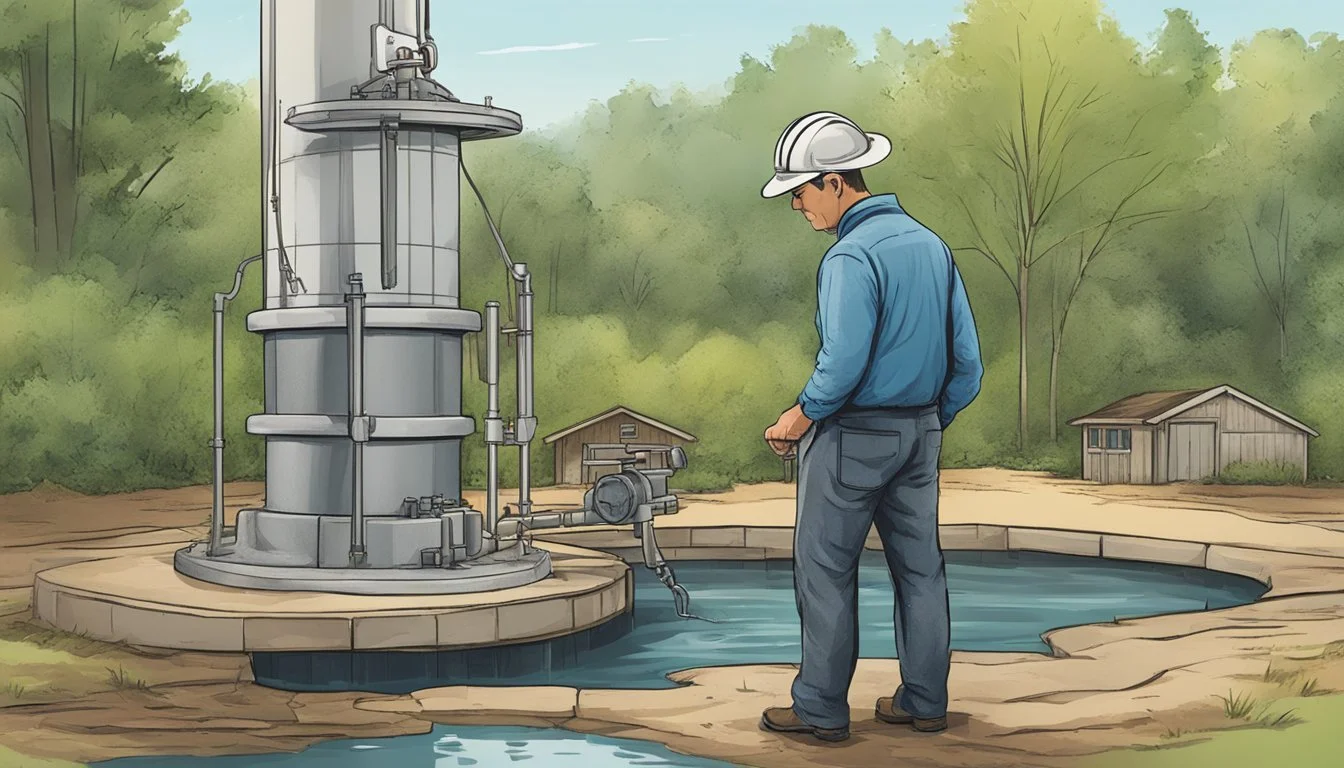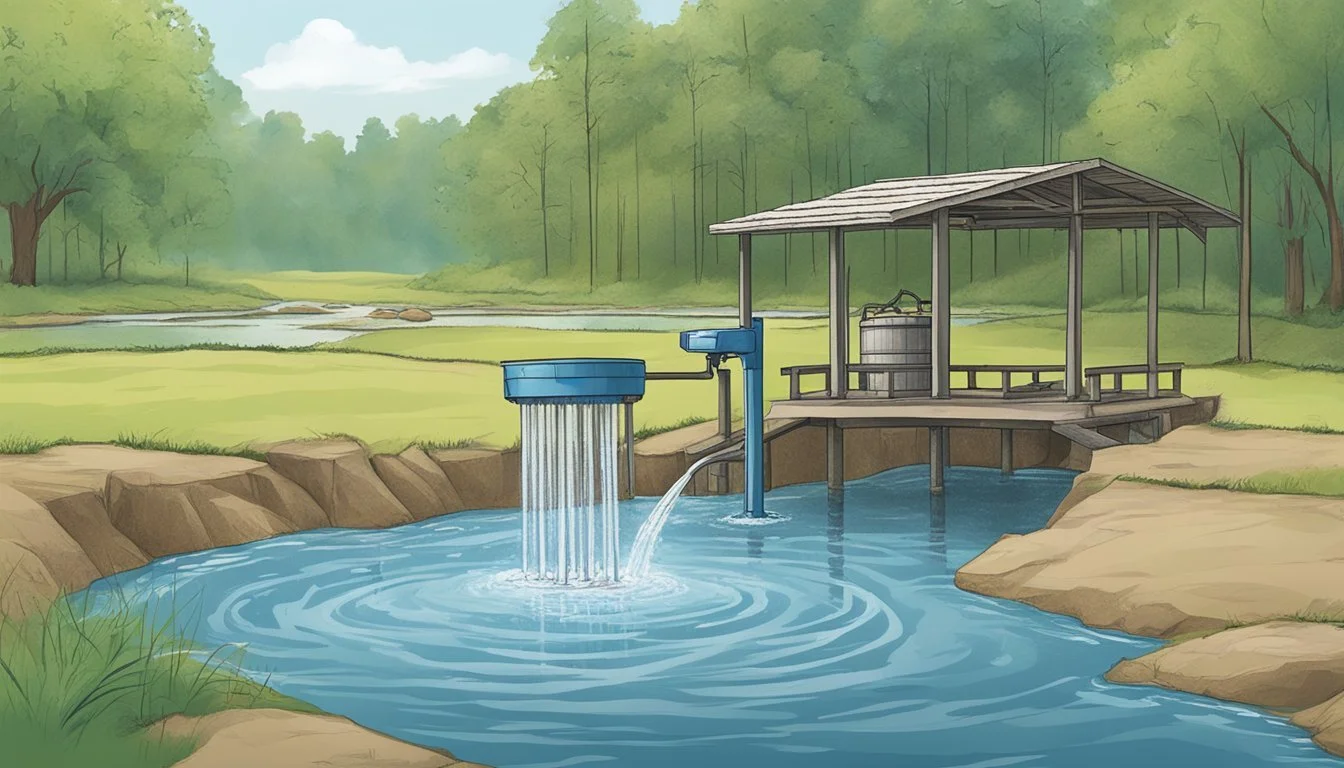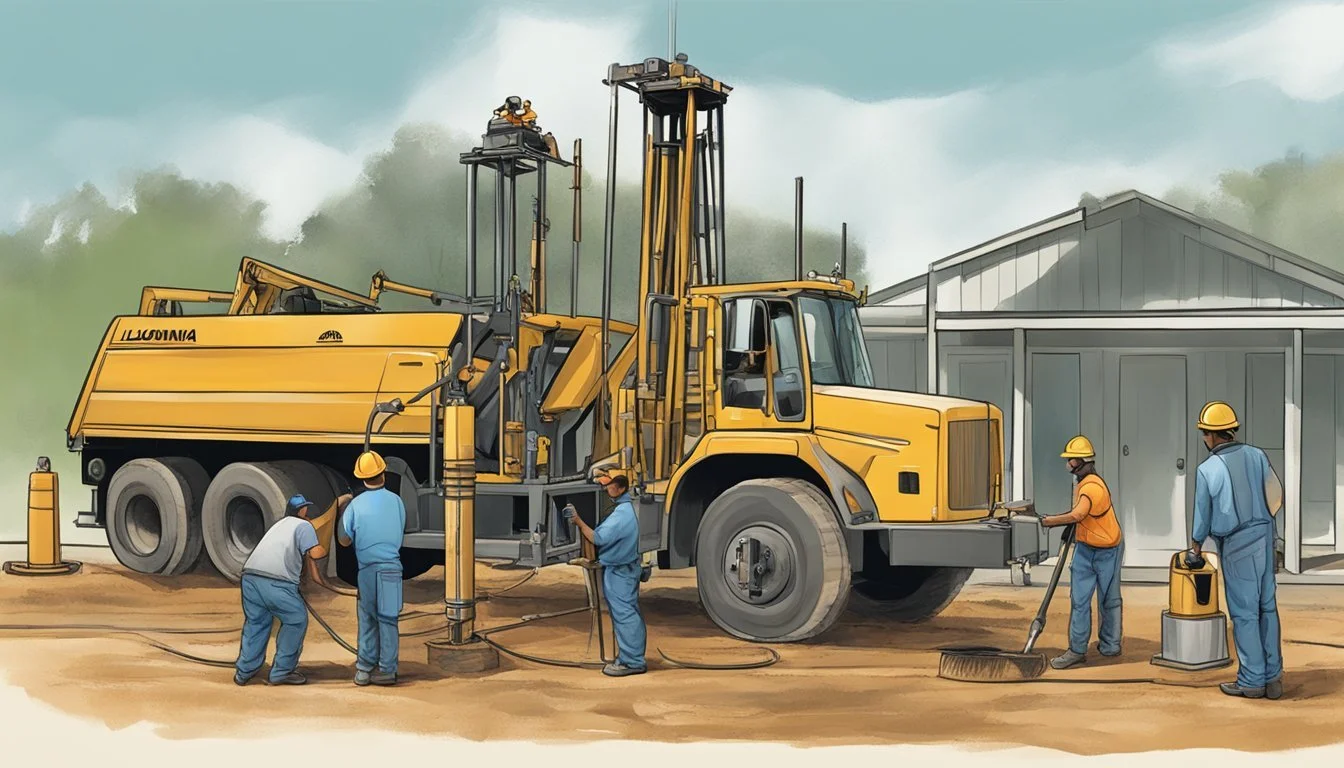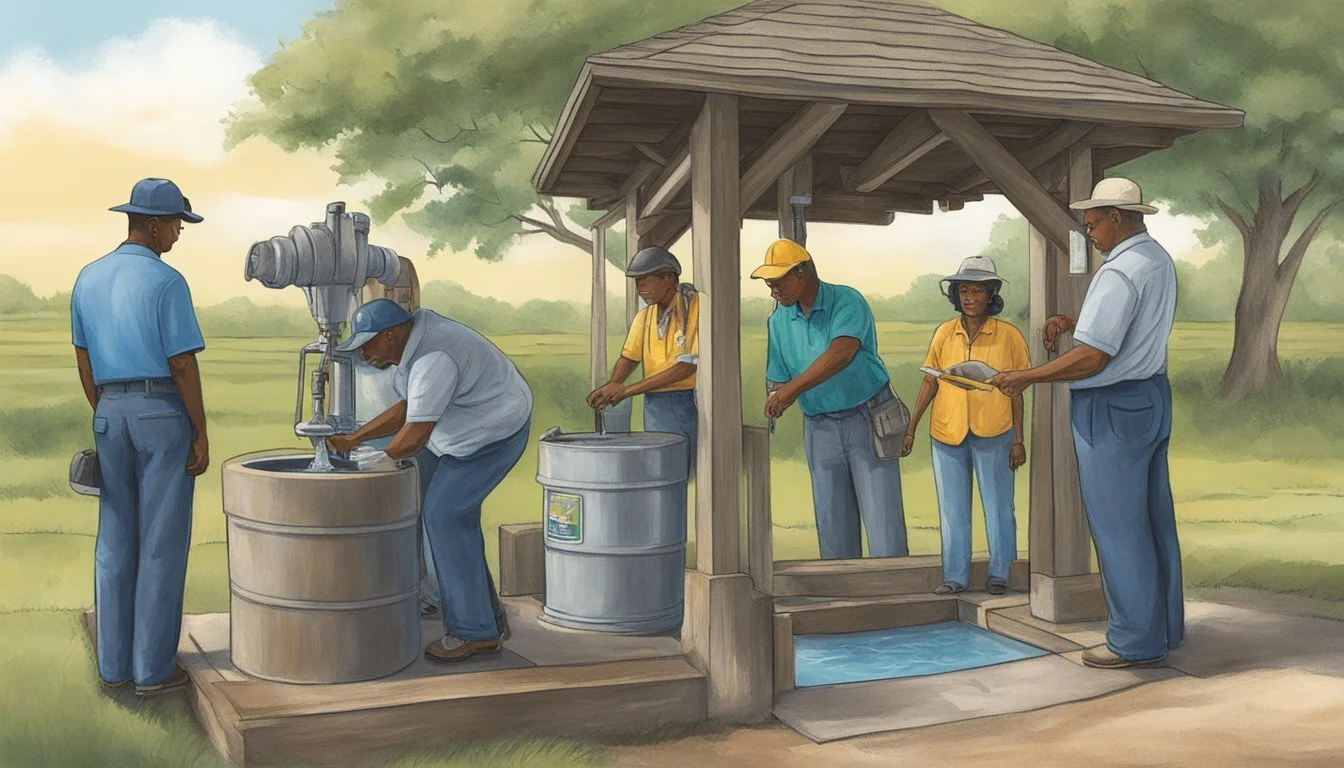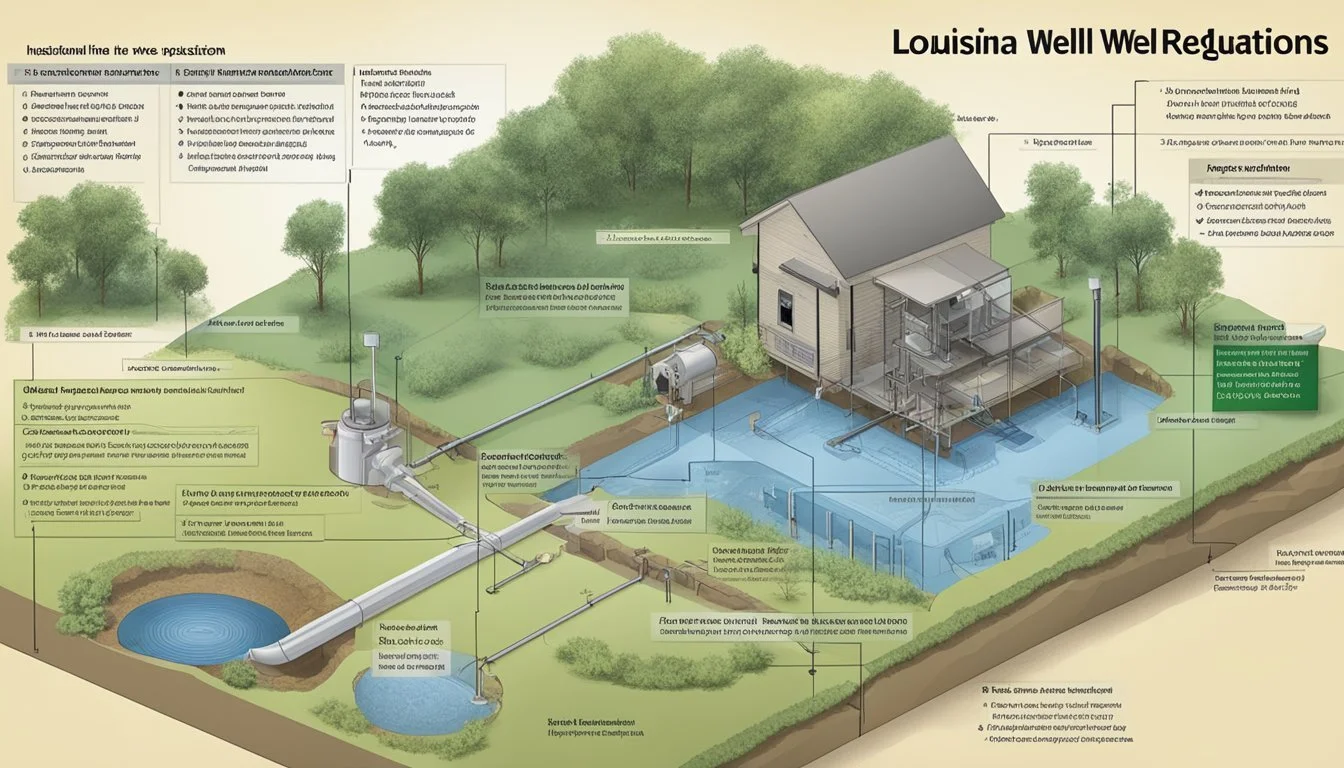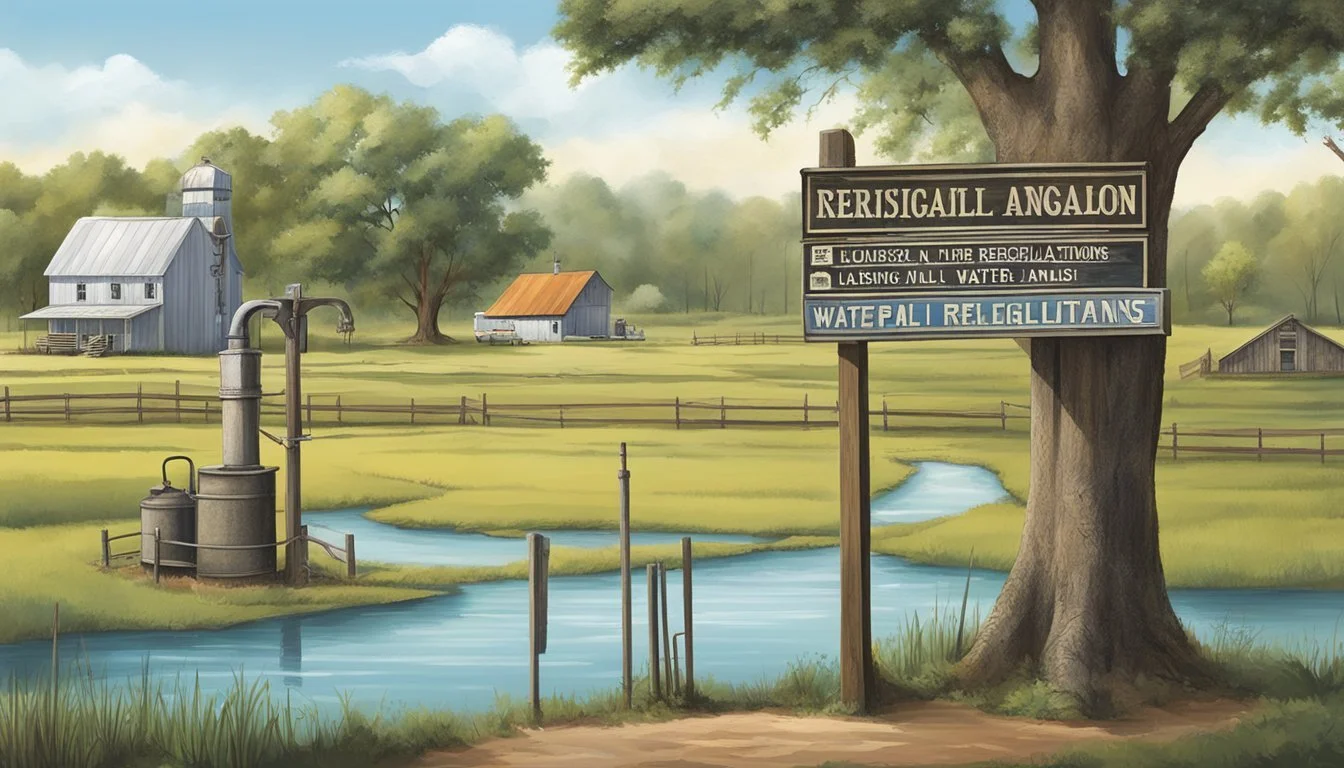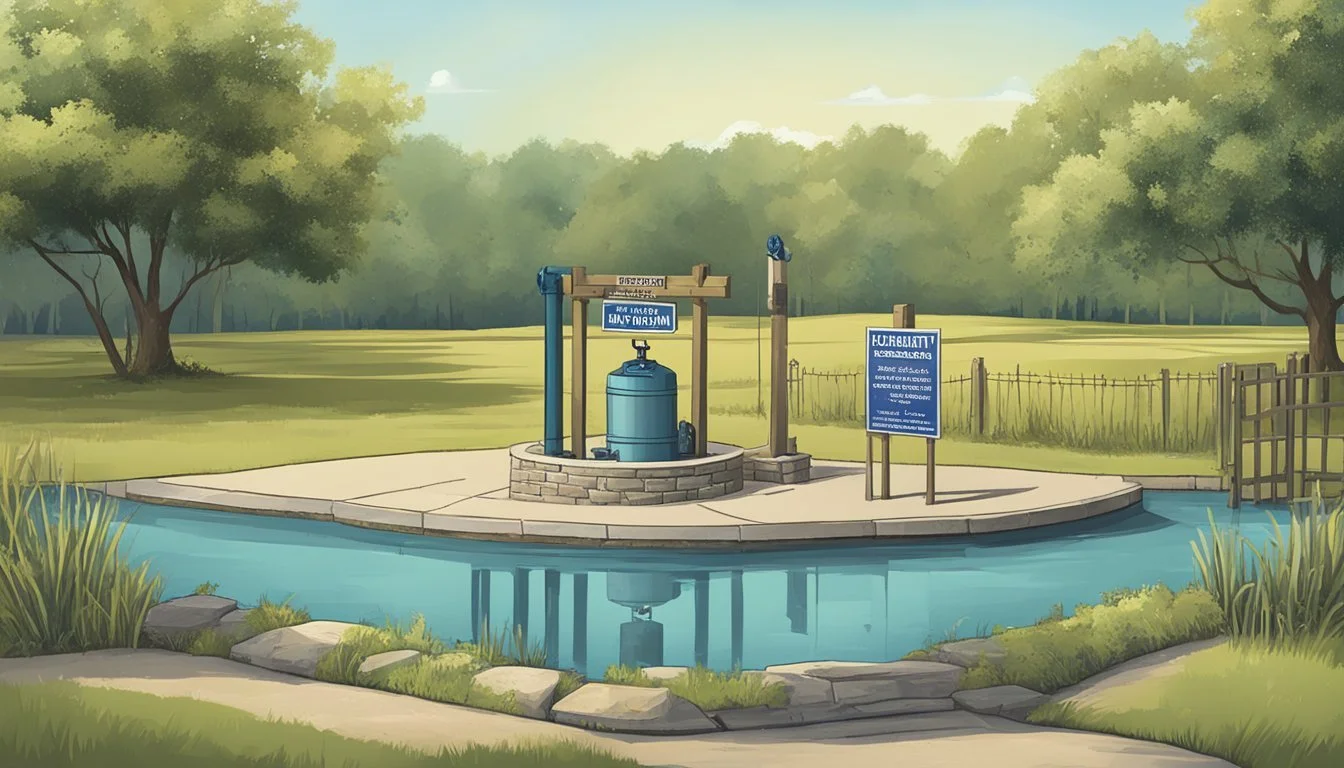Louisiana Water Well Regulations
Understanding Compliance for Safe Water Access
Louisiana takes water quality and public health seriously, implementing strict regulations concerning water wells across the state. These rules ensure that all water wells, regardless of their purpose, comply with standards that help maintain safe and clean drinking water for its residents. The Department of Energy and Natural Resources specifies that registration requirements are mandatory for all water wells, including those used for public supply, domestic purposes, and agricultural irrigation, among others.
The Office of Conservation within the Louisiana Department of Energy and Natural Resources outlines additional protocols. For instance, they mandate a 60-day prior notification before the construction of water wells, with certain exceptions. These frameworks are in place not only to protect the public health but also to monitor and control state water resources effectively.
To maintain this level of water safety and regulatory compliance, the state requires licensure for water well contractors and drillers. The regulations include detailed standards for the construction, plugging, and abandonment of water wells. These measures work together to prevent contamination and to sustain the integrity of Louisiana's groundwater resources, reflecting the state's commitment to environmental stewardship and public welfare.
Water Well Regulatory Framework
In Louisiana, the comprehensive regulatory framework governing water wells aims to protect ground water resources and ensure safe drinking water. This framework is bolstered by federal oversight, state-specific regulations, and data-driven management.
Clean Water Act
The Clean Water Act (CWA) forms the foundation for regulating the discharge of pollutants into US waters. Implemented by the Environmental Protection Agency (EPA), the CWA underpins the establishment of water quality standards that affect water well regulations in Louisiana.
Office of Conservation
The Louisiana Department of Natural Resources (LDNR) houses the Office of Conservation, which is charged with the supervision of natural resources, including water wells. They ensure adherence to regulations, manage resources sustainably, and oversee the rulemaking processes concerning water use and conservation.
Ground Water Resources Program
The Ground Water Resources Program operates within the framework of the Office of Conservation. This program's responsibilities include monitoring data pertaining to ground water conditions, licensing of water well contractors, and enforcement of standards for well construction, maintenance, and abandonment.
Water Quality and Public Health
The intersection of water quality and public health cannot be overstated in Louisiana, as it ensures the safe consumption of drinking water for its residents. Regulatory compliance, the maintenance of water purity, and the minimization of contaminants like turbidity, lead, and arsenic are critical.
Safe Drinking Water Standards
In Louisiana, drinking water standards are crucial in protecting public health. The Louisiana Department of Health mandates water systems to meet maximum contaminant levels (MCLs). For example, the state enforces MCLs for lead at 15 parts per billion and arsenic at 10 parts per billion, aligning with national guidelines for safe drinking water.
Water Treatment Methodologies
Water treatment methodologies are implemented to meet or exceed safe water standards. These methods include filtration to reduce turbidity, chemical treatments to disinfect and eliminate pathogens, and processes like reverse osmosis for removing heavy metals. Louisiana's public water systems are required to use recognized and effective treatment techniques to ensure compliance with health regulations.
Contaminants and Testing
Regular testing for contaminants is a regulatory requirement to safeguard public health. This involves monitoring for physical, chemical, and biological contaminants. Water systems frequently test for turbidity, which can shield harmful microbes from disinfection processes. Testing protocols also include screening for trace elements like lead and arsenic, which can cause severe health issues if consumed at unsafe levels.
Well Ownership and Responsibility
In Louisiana, well ownership carries with it a set of well-defined responsibilities. The state mandates that owners of water wells adhere to strict guidelines and registration procedures to ensure public safety and water quality.
Private Well Initiative
The Private Well Initiative in Louisiana focuses on educating well owners about the importance of maintaining their water wells. It provides resources and guidance to ensure that private wells are constructed and maintained in accordance with state regulations. Under this initiative, well owners are encouraged to become proactive in protecting groundwater by following the best practices for well management.
Owner Compliance Duties
Well owners in Louisiana have a legal obligation to comply with state regulations. This includes ensuring proper:
Registration: Wells must be registered with the relevant state authorities.
Submitting a completed Water Well Registration Form to the Louisiana Department of Public Works is a critical first step to compliance.
Construction and Maintenance: Adherence to the standards for well construction and maintenance is necessary to prevent contamination and ensure user safety.
Plugging and Abandonment: When a well is no longer in use, the owner must follow the proper plugging and abandonment procedures to avoid environmental hazards.
Owners must also be aware that any changes in well structure or ownership need to be reported to ensure that all records are current and accurate. By complying with these duties, well owners directly contribute to the preservation of Louisiana's groundwater resources.
Well Construction and Maintenance
In Louisiana, rigorous standards govern the construction, maintenance, and ultimate closure of water wells, ensuring the protection of water resources and public health. Compliance with these regulations is crucial for the safety and sustainability of groundwater systems.
Construction Regulations
Water well construction in Louisiana must adhere to specific regulations and standards to safeguard groundwater from contamination. Contractors are legally required to register water wells, and all new constructions must follow the guidelines set by the state authorities. These include using proper materials, ensuring structural integrity, and preventing the intermixing of waters from different strata.
Maintenance and Testing Requirements
Regular maintenance and testing of water wells are imperative for the longevity and functionality of the water source. The State of Louisiana mandates that water well contractors and other drillers conduct periodic tests to monitor water quality and system integrity. Maintenance procedures should address any issues related to well performance, quality of water, and the physical condition of the well components, to remain in compliance with the enforced standards.
Plugging and Abandonment Procedures
When a water well is no longer in use, correct plugging and abandonment procedures must be followed. They are detailed to prevent any potential hazards to the environment and public health. Contractors must submit the proper registration forms within 30 calendar days after the completion of plugging. This process entails sealing the well to prevent the flow of water between formations, removing any contamination risks, and restoring the site.
Water Well Registration and Licensing
In Louisiana, the Department of Energy and Natural Resources stipulates specific procedures for water well registration and licensure of water well drillers and contractors. These regulations are in place to ensure that water wells meet safety and environmental standards.
Registration Procedure
To register a water well in Louisiana, one must submit a water well registration form to the appropriate state authorities. This form requires details such as the well's location, owner information, and technical specifications. Active water well drillers are responsible for ensuring that the registration aligns with the state's regulations.
Licensure for Drillers and Contractors
Contractors and drillers seeking licensure in Louisiana must demonstrate technical competency and understanding of the state's water well standards. The licensure process involves passing an examination that covers a diverse range of topics, from safety practices to environmental laws. After obtaining licensure, contractors are required to maintain their status by staying abreast of regulation changes and participating in continuing education.
Aquifer and Water Source Protection
In Louisiana, aquifer and water source protection efforts are vital for safeguarding the state's natural resources. These measures are essential to maintain a clean and sustainable supply of groundwater and surface water for various uses.
Aquifer Management
Aquifers, the natural underground layers that hold groundwater, are a critical source of water in Louisiana. The state has implemented several regulations geared towards the evaluation and protection of these vital resources. Effective aquifer management is ensured by the strict registration requirements for water wells, which maintain the integrity and prevent the overexploitation of these crucial natural reserves. For instance, the Louisiana Department of Environmental Quality holds the responsibility for providing comprehensive environmental protection which includes oversight of the state’s aquifers.
Well Registration: Every water well, irrespective of yield or use, must be registered, promoting responsible aquifer utilization and monitoring.
Usage Monitoring: Close monitoring of the usage rates from aquifers helps in preventing the depletion of these water sources and ensures a balance between consumption and natural replenishment.
Source Water Protection
Source water protection programs are critical in preventing contamination of both groundwater and surface waters. The goal is to shield these sources from pollutants before they can make an impact. For example, Louisiana delineates Source Water Protection Areas and conducts Significant Potential Source of Contamination inventories as part of its Source Water Protection FAQs. These strategies are implemented to minimize the hazards that can affect these waters, ultimately protecting both the environment and public health.
Protection Areas: Defined zones around aquifers and surface waters safeguard these sources from potential contamination.
Vulnerability Analysis: Conducting Potential Susceptibility Analysis helps to understand the risks to water sources and tailor protection efforts accordingly.
By focusing on aquifer management and source water protection, Louisiana demonstrates a commitment to preserving its waters for future generations while ensuring the safety and welfare of its current residents.
Legal and Policy Considerations
Louisiana's water well regulations involve complex legal frameworks and policy details that stakeholders must carefully navigate. Specific areas such as prior notification requirements and standardized glossaries play a critical role in maintaining regulatory compliance.
Prior Notification Requirements
Entities planning to engage in activities that affect water wells in Louisiana must adhere to prior notification requirements. This process mandates that organizations submit detailed plans to regulatory bodies before commencing any projects. For example, if a company intends to undertake engineering work related to water infrastructure, they must provide advanced notification to the relevant authorities, ensuring all activities comply with the latest standards and regulations.
The content of these notifications typically includes:
Type of activity: A clear description of the proposed work.
Location details: The precise geographic coordinates or a P.O. Box when applicable.
Expected impact: An assessment of the potential implications for water resources.
Engineering specifications: Detailed plans that reflect accuracy and adherence to rulemaking principles.
Glossary of Terms
A clear understanding of the terminology is essential for all stakeholders involved in water well regulations. The Glossary of Terms serves as a foundational reference that ensures uniform interpretation and application of the rules. Each term used within regulatory documents is defined with precision to avoid ambiguity during the execution of water-related activities.
Key terms in this glossary include:
Accuracy: The extent to which information reflects the true situation.
Rulemaking: The process of creating regulations that govern water well activities.
Engineering: The application of scientific principles to the optimization of water well design and construction.
Stakeholders must familiarize themselves with these terms to ensure they meet legal expectations and uphold policy standards when engaging in activities that affect Louisiana's water wells.
Driller and Contractor Resources
Louisiana water well drillers and contractors must navigate a detailed set of regulations to maintain compliance and best industry practices. Resources are available to assist with understanding supply and demand, as well as achieving certification and adhering to best practices in the field.
Supply and Demand
The demand for drilling services in Louisiana is shaped by various factors, including the requirement for potable water and the needs for heat pump supply and heat pump holes. Contractors must be equipped with an adequate rig supply to meet the technical demands of well construction, whether drilling for water wells or creating heat pump holes. The abandonment of unused wells, such as abandoned pilot holes, must also be conducted in accordance with state regulations, ensuring environmental safety and resource management.
Certification and Best Practices
Achieving certification is essential for contractors and well drillers. The Department of Energy and Natural Resources | State of Louisiana mandates that drillers complete a Water Well Registration Form within 30 days post-construction. This ensures that all water wells and related structures, like heat pump holes, are properly documented. It is crucial for water well contractors to be well-acquainted with public works regulations, which outline standards for registration, plugging, and abandonment, as well as the proper installation of control devices on free-flowing wells. For those involved in drilling heat pump holes or other types of wells, remaining updated with industry best practices and ongoing professional development is not only beneficial but often required by law.
Water System Technical Information
In Louisiana, water system regulations are comprehensive, focusing on the construction, registration, and maintenance of water wells to ensure the safety and quality of drinking water. Baton Rouge, the state's capital, adheres strictly to these regulations, providing a benchmark for other regions in the implementation of safe drinking water practices.
Registration and Standards
All water wells, including domestic and agricultural wells, must be registered with the state. This encompasses wells across various applications:
Public supply
Domestic use
Irrigation/agriculture
Detailed guidelines stipulate the requirements for well construction and abandonment, ensuring integrity and safety.
Water Quality Assurance
Surface water and groundwater must meet specific surface water quality standards. The state mandates that water from wells undergo regular testing by certified laboratories to detect contaminants and verify compliance with health standards.
Water Source
Domestic Well
Public Water Sys.
Testing Frequency
Annually
Quarterly
Parameters Checked
Bacteria, nitrates
Lead, copper
Licensing and Enforcement
Contractors involved in well installation and maintenance in the region must hold a valid license. This certifies that they are proficient in the latest methods and regulations pertaining to water well systems. The enforcement of these specifications is crucial for the continued provision of safe drinking water.
Overall, the Louisiana Department of Natural Resources (LDNR) provides detailed information on Water Rules and Regulations that are of paramount importance for the welfare of its residents, ensuring the access to clean water in accordance with Act 437. For more in-depth regulations, one can refer to the Louisiana's State Government database.
Regional and Local Context
In Louisiana, water well regulations maintain a balance between resource conservation and the needs of a diverse array of local stakeholders. The Office of Conservation, falling under the Louisiana Department of Natural Resources, is charged with ensuring that water wells across the state adhere to a stringent set of rules and guidelines to preserve groundwater resources.
The regulations apply ubiquitously across all parishes, including major urban centers like Baton Rouge. Each parish is subject to these regulations, which stipulate requirements for well registration, construction, plugging, and abandonment. Furthermore, water well contractors and drillers are required to possess a valid license.
The Water Well Registration Form LDPW-GW-1 is instrumental in this process and must be utilized for all water wells completed on or after July 1, 1975. This form serves as a means of formal communication between water well contractors and the governing bodies.
The Office of Conservation's authority is rooted in the statutes R.S. 38:2091-38:3098.8. These statutes encompass various types of wells, including but not limited to:
Public supply
Domestic
Agriculture/Irrigation
Industrial and power generation
Monitoring and observation
By closely collaborating with local authorities, the Louisiana Department of Public Works ensures that the registration requirements are uniformly enforced, reflecting an understanding of both regional and local water usage and conservation challenges.
Frequently Asked Questions
The regulation of water wells in Louisiana is characterized by specific requirements for drillers' licensing, well database access procedures, well depth, associated costs, legal stipulations for personal wells, and property line proximity regulations.
What are the current requirements for obtaining a Water Well Driller's License in Louisiana?
In Louisiana, drillers must comply with certain regulations and standards for licensing, which include passing a licensing exam and meeting experience requirements established by the state's regulatory body.
How can I access the Louisiana water well database?
The Ground Water Resources Program allows individuals to access the Louisiana water well database, which stores information on well construction, drilling data, and other pertinent details.
What is the typical depth for water wells in Louisiana?
The depth of water wells in Louisiana can vary significantly depending on the geographic location and the aquifer being tapped. There is no single typical depth, as it must be assessed on a case-by-case basis.
What are the average costs associated with drilling a water well in Louisiana?
Costs for drilling a water well in Louisiana depend on various factors, including well depth, local geology, and the type of well being constructed.
What are the legal stipulations for digging a personal water well in Louisiana?
Louisiana has specific guidelines for personal water well construction, which cover registration requirements for all types of wells, regardless of their use or yield.
How far must a water well be located from the property line in Louisiana?
Louisiana's regulations stipulate certain distances that a water well must be set back from property lines and other potential sources of contamination to protect water quality, but these can vary based on local ordinances and the type of well.

